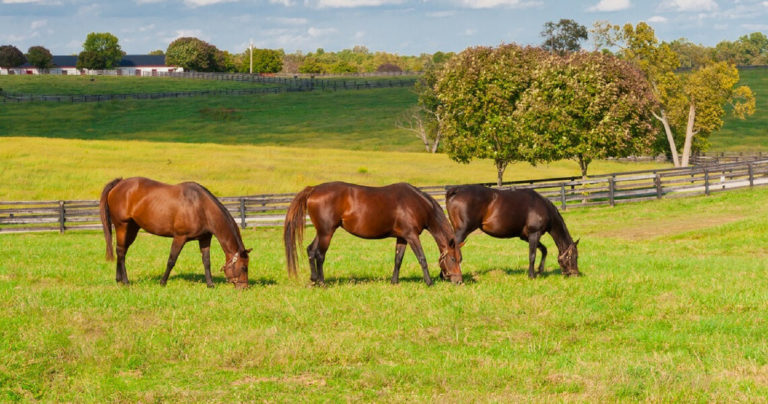
Horses and grass clippings
Acquiring your own property is a dream come true for many equestrians – a patch of land to call your own where you can keep your horse at home. Heaven! Of course, if you’ve never lived on the land before, and have always kept your horse in fullboard agistment, there might also be a steep learning curve when it comes to property and equine care. One really common property management question that pops up on horse forums is, “can I feed my horse grass clippings?”
If you have a catcher on your lawn mower then you’ve got to deposit those piles of clippings somewhere, and if your mower simply spits the grass out, then you’ll have lines of clippings scattered along the way.
Unfortunately, it’s really unsafe for your horse to graze on these clippings. To explain why, Cavalletti asked Jane Myers, the co-author of the Equicentral System Series books to describe why grass clippings and horses don’t mix.
Why grass clippings are dangerous for your horse
Never feed a horse on lawn mower clippings or any other types of garden waste as this can be a very dangerous practice for various reasons:
- When lawn mower clippings are freshly cut (and for a period of time afterwards) they are fermenting – this is why a pile of lawn mower clippings are warm or even hot to the touch.
- When a horse is given a pile of fresh lawn mower clippings to eat, they tend to gorge on them. This is because the clippings have been chopped up into small pieces (by the mower) so they do not need to be chewed. The horse can simply swallow them quickly, without mixing them with saliva (which is what normally happens when a horse chews their food). Therefore, the lawn mower clippings arrive in the stomach already fermenting and without the benefit of saliva to ‘dilute’ them.
In the normal situation, grasses that are eaten by a horse do not start to properly ferment until they are further along the digestive system, in a part that has specialised microorganisms to help the fermentation process.
The fermenting gases given off by the lawn mower clippings can expand to the point where they rupture the stomach (which is fatal!). Even if this does not happen, the fermenting clippings can cause colic or other very dangerous gastrointestinal disorders as they move through the rest of the digestive system.
The lawn mower clippings may also contain the clippings of garden plants that the horse would normally avoid. You cannot see them and your horse will probably not be able to detect them either. Horses are usually quite good at avoiding eating poisonous plants but if they are mixed in with grass clippings they may eat them inadvertently.
The lawn that the clippings came from may have been sprayed with chemicals (such as fertilisers, pesticides and/or herbicides) before it was mown. The horse will then ingest these chemicals along with the grass clippings.
If your horses live on land that is alongside one or more suburban properties, be aware that the neighbours may be dumping garden waste including lawn mower clippings over the fence, therefore it can be a good idea to erect a double fence in this situation. Even a simple electric fence that is placed several feet to the inside of the perimeter fence may be enough, although neighbours may still insist on putting garden waste in with your animals. Remember that in or near suburbia, you may be required by law to erect signage warning people that electric fencing is being used – check with your local authority.
Other measures that you can take include posting notices asking people not to feed your animals. Chat to neighbours about the risks and ask them to stop dropping any garden waste over the fence. In most cases, people think they are doing your animals a favour and, once the dangers are explained to them, they will stop doing it.
If you are a keen composter of your manure, you may be able to make good use of their garden waste on your compost pile. For example, if you have lots of woody products such as wood shavings to compost, the addition of green garden waste will be a boon so you could ask them to put the garden waste on your manure heap instead.
What about when a paddock is mowed in order to tidy it up? The horses may be able to be left in a paddock after mowing provided that the cuttings are well scattered (they dry out quickly in this case). The mown grass cuttings in this situation are not usually cut as fine as are lawn mower clippings and they usually dry out quickly or decompose with little or no fermentation. The remaining freshly cut grass stems (rather than the cuttings) are sweetened with sugars stored in the plant leaf, so the grazing animals are usually more interested in this rather than the grass cuttings themselves. Be aware though that horses that are at risk of laminitis will be at risk of eating too much sugar in this case.
If you are at all unsure, remove the horses from the paddock for several days before letting them back in. Better still, only mow paddocks after you move the herd to the next paddock as part of a rotational grazing management system.






